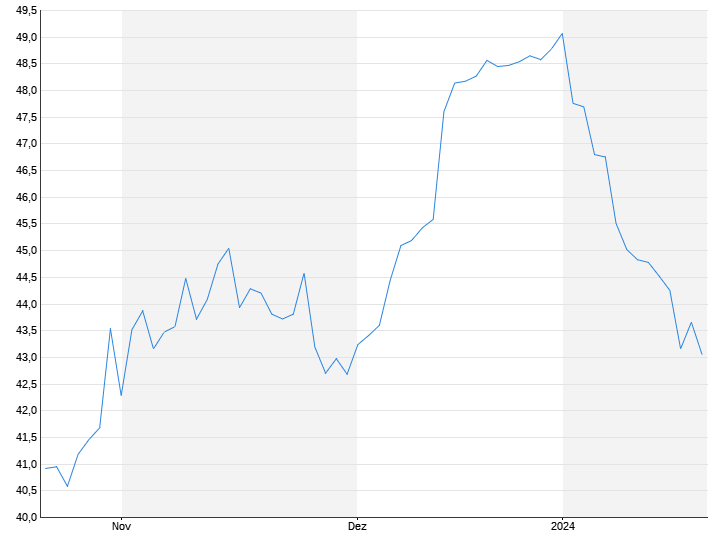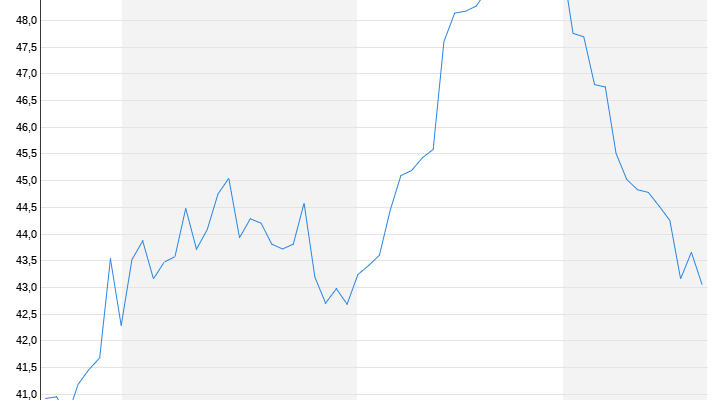Chemical giant is struggling with problems
BASF disappoints in terms of sales and profits
January 19, 2024, 11:06 a.m
Listen to article
This audio version was artificially generated. More info | Send feedback
Weak demand and increased energy costs will be noticeable on BASF’s balance sheet in 2023. Despite lowering its targets in the meantime, the chemical company is missing its annual targets. In some areas the red pencil is now being applied.
The chemical company BASF is coming under increasing pressure to act due to weak demand and high costs. Last year, sales and profits fell well short of its own expectations, as the group admitted. However, the Ludwigshafen team recorded a profit again. In 2022, due to the Russian attack on Ukraine, they had to write down billions of dollars on the oil and gas business of the subsidiary Wintershall Dea.

The price surge for gas and energy hit the chemical company hard. The global economic downturn is also slowing demand for the group’s products, which are used as raw materials in many goods. The share price was almost 70 euros in February 2022 and has lost more than a third since then. Earnings before interest and taxes (EBIT) and before special items fell by 45 percent in 2023 to an expected 3.8 billion euros. The decline compared to the previous year is due to lower profit margins. Austerity measures could not have compensated for this.
With the result, BASF missed its stated annual targets: Most recently, outgoing boss Martin Brudermüller targeted the lower end of the forecast range of four billion to 4.4 billion euros at the end of October. In July, BASF had already lowered its outlook due to the weak markets.
The same picture emerged when it came to sales: in 2023, BASF generated 68.9 billion euros – a decline of a good fifth. The company had promised a value of 73 billion euros. At the end of October, management had already announced that it would reduce costs more than planned in the coming years. According to previous information, BASF invested around one billion euros less in property, plant and equipment in 2023 than planned. In the four years up to 2027 it should also be three billion euros less than planned. In addition, costs are to be reduced by a total of around 1.1 billion euros by the end of 2026. The focus is Europe.
Energy, agriculture and batteries should go
In December, BASF announced the long-promised sale of Wintershall Dea for an enterprise value including debt of $11.2 billion (10.3 billion euros), which is scheduled to be completed in the fourth quarter of this year. The group also wants to outsource the agricultural and battery business.
The bottom line is that there should be a profit of 225 million euros left for 2023, as the group further announced. A year earlier, BASF had made a loss of 627 million euros.
The entire industry in Germany is also feeling the effects of weak foreign demand: the business climate in the chemical industry fell to minus 15.2 points in December after minus 13 points in November, as the economic research institute IFO announced. “Although the chemical industry seems to have bottomed out, there is still no sign of an upward trend in the near future,” said IFO industry expert Anna Wolf. The companies’ pessimism is also reflected in their personnel planning. According to the IFO, expectations here are at their lowest level since the financial crisis of 2008/2009. “The chemical industry is threatened with even greater job losses,” said the expert.
